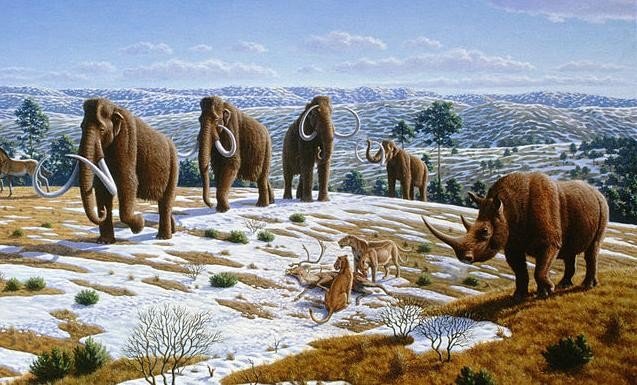Mammoths (Image via Public Library of Science)
NASHVILLE, April 24 (UPI) -- Diversity has helped mammals survive climate change in North America over "deep time," a period of 56 million years in Earth's history, U.S. researchers say.
It allowed them to survive from the beginning of the Eocene to 12,000 years ago and the terminal Pleistocene extinction when mammoths, saber-toothed tigers, giant sloths and most of the other "megafauna" mammals on the continent disappeared, they said.
"Before we can predict how mammals will respond to climate change in the future, we need to understand how they responded to climate change in the past," said study leader Larisa R.G. DeSantis, a professor of earth and environmental studies at Vanderbilt University.
"It is particularly important to establish a baseline that shows how they adapted before humans came on the scene to complicate the picture," DeSantis said in a university release Tuesday.
The study analyzed the relative range and distribution of mammalian families and found they remained strikingly consistent throughout major climate changes in the past 56 million years.
"These data clearly show that most families were extremely resilient to climate and environmental change over deep time," DeSantis said.
The analysis found a link between a family's diversity and its range: Families with the greater diversity were more stable and had larger ranges than less diverse families.
"Diversity is good. The more species a family has that fill different niches, the greater its ability to maintain larger ranges regardless of climate change," DeSantis said.
The role of diversity in mammalian adaptation is particularly important because mammal species have been going extinct in record numbers for the past 400 years, researchers said, meaning the diversity of mammalian families is declining at a time when they need it the most to cope with a rapidly changing climate.















